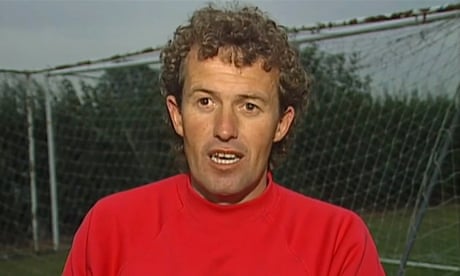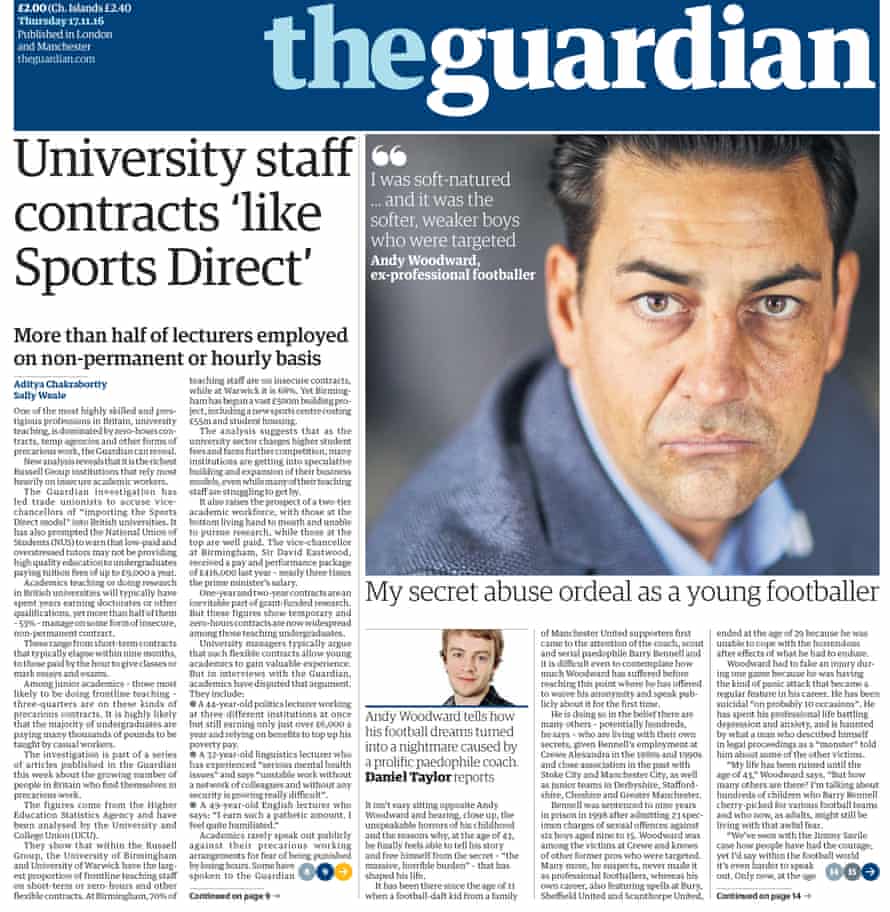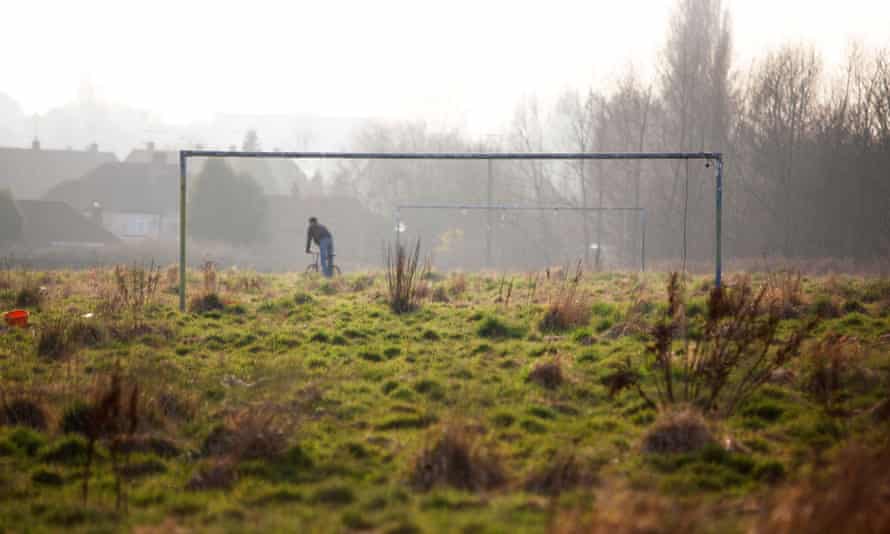“Sheldon report into sexual abuse details the horror in the ‘beautiful game'”, The Guardian
David Conn, London, 17 Mar 2021
Analysis: Inadequacy of child protection for decades in football and across British life shown up in inquiry’s findings
Almost five years since Andy Woodward demolished the dam of silencemuffling the scale and horror of sexual abuse in football, the 700-page report by Clive Sheldon QC for the Football Association sought to explain how that hell was allowed to happen.
The stark reality of the free run predatory abusers had across England’s most celebrated sport, from grimy grassroots boys’ clubs to some of the nation’s most prestigious, remains utterly shocking from a perspective of modern safeguarding. Much of the report delves into who knew what and might have done more about the notorious abusers, including Barry Bennell, George Ormond and Bob Higgins, who have been convicted of 142 sexual offences following new prosecutions since Woodward’s landmark 2016 interview in the Guardian.

But one plain fact stands out to illustrate how threadbare child protection was, not only in football and sport more widely, but across whole areas of British society wherever children engaged in organised activities without their parents.
Frank Roper, now notorious for his sexual abuse of young boys, including Paul Stewart, who became an England international but now says the abuse left his soul “empty”, had for 20 years from the late 1960s “a close association” with Blackpool FC. Yet the report notes that Roper had been convicted of indecent assault on a minor in 1960, 1961, 1965 and even in 1984. Not only was this most basic of checks not done, then, but “there was no formal mechanism by which the club could have obtained information about these convictions”.
In the absence of any formal safeguarding culture and, Sheldon found, at a time – so recent – of profound ignorance and naivety among responsible adults about the risks of abuse, it was left to people’s “common sense and experience” to protect the children.

They failed terribly, but for those – particularly the victims – who believe that senior figures at the clubs must have known it was happening and covered it up, the result of Sheldon’s extensive inquiries came as a disappointment. Having spent four years on his investigations, including a review of all the prosecutions, Sheldon found that actual instances of abuse reported to people in authority at clubs were vanishingly rare. The victims themselves, young teenagers who dreamed of sporting stardom but were prey to Bennell, Roper, Ormond, Higgins and the rest, told Sheldon of the bullying, manipulation, fear and feelings of shame which plunged them into silence.
The page where Sheldon summarises clubs’ failures to respond properly to actual reports of abuse is painfully short, with only four instances cited from an inquiry covering a quarter century, from 1970 to 1995. One of those incidents, in 1975, threw up a hideous revelation about Dario Gradi, who failed while assistant manager at Chelsea to secure any firm action against the youth coach Eddie Heath, accused by a father of sexually assaulting his son. Sheldon recorded that in his own interview with Gradi, more than 40 years later, the once-esteemed football man had said he did not consider that somebody putting their hands down a boy’s trousers was sexual assault.
